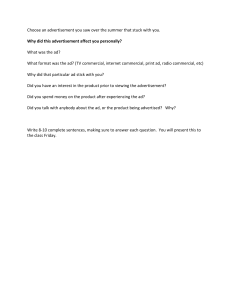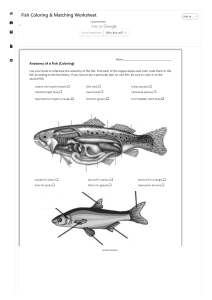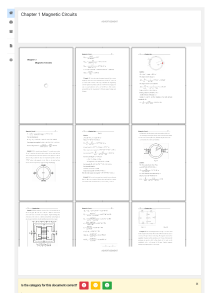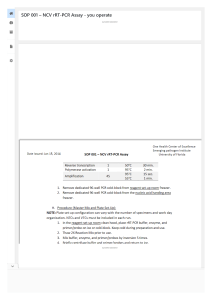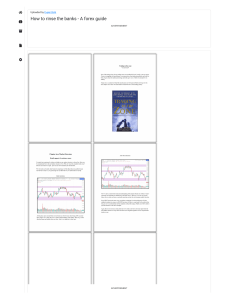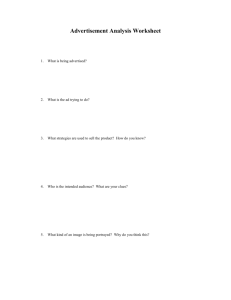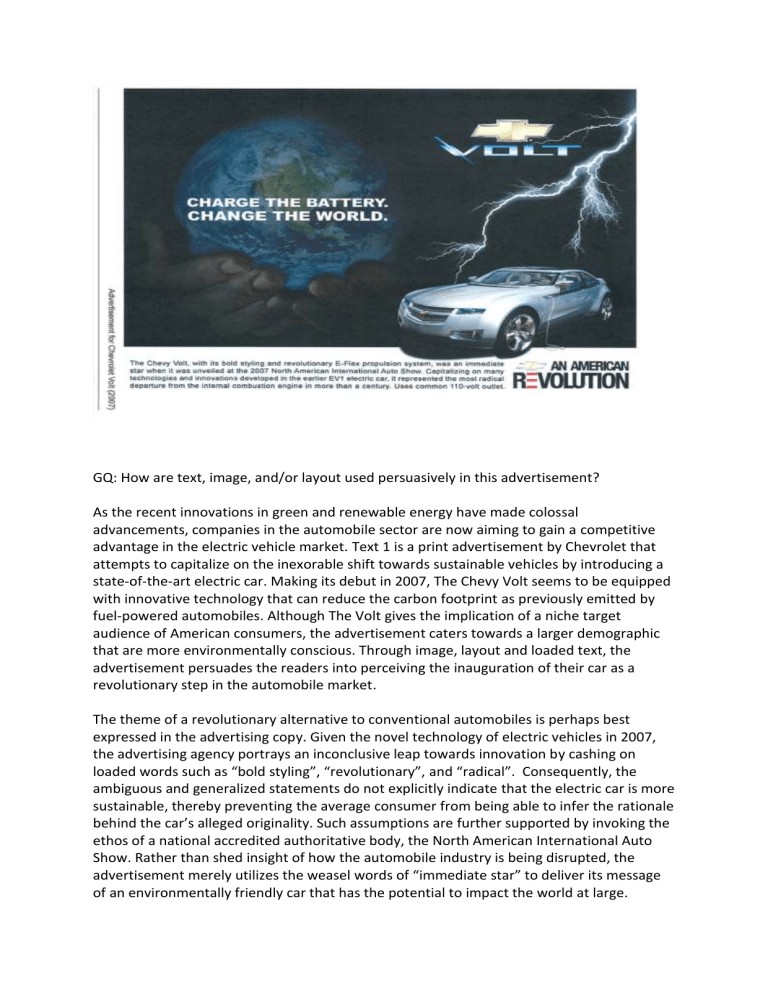
GQ: How are text, image, and/or layout used persuasively in this advertisement? As the recent innovations in green and renewable energy have made colossal advancements, companies in the automobile sector are now aiming to gain a competitive advantage in the electric vehicle market. Text 1 is a print advertisement by Chevrolet that attempts to capitalize on the inexorable shift towards sustainable vehicles by introducing a state-of-the-art electric car. Making its debut in 2007, The Chevy Volt seems to be equipped with innovative technology that can reduce the carbon footprint as previously emitted by fuel-powered automobiles. Although The Volt gives the implication of a niche target audience of American consumers, the advertisement caters towards a larger demographic that are more environmentally conscious. Through image, layout and loaded text, the advertisement persuades the readers into perceiving the inauguration of their car as a revolutionary step in the automobile market. The theme of a revolutionary alternative to conventional automobiles is perhaps best expressed in the advertising copy. Given the novel technology of electric vehicles in 2007, the advertising agency portrays an inconclusive leap towards innovation by cashing on loaded words such as “bold styling”, “revolutionary”, and “radical”. Consequently, the ambiguous and generalized statements do not explicitly indicate that the electric car is more sustainable, thereby preventing the average consumer from being able to infer the rationale behind the car’s alleged originality. Such assumptions are further supported by invoking the ethos of a national accredited authoritative body, the North American International Auto Show. Rather than shed insight of how the automobile industry is being disrupted, the advertisement merely utilizes the weasel words of “immediate star” to deliver its message of an environmentally friendly car that has the potential to impact the world at large.
